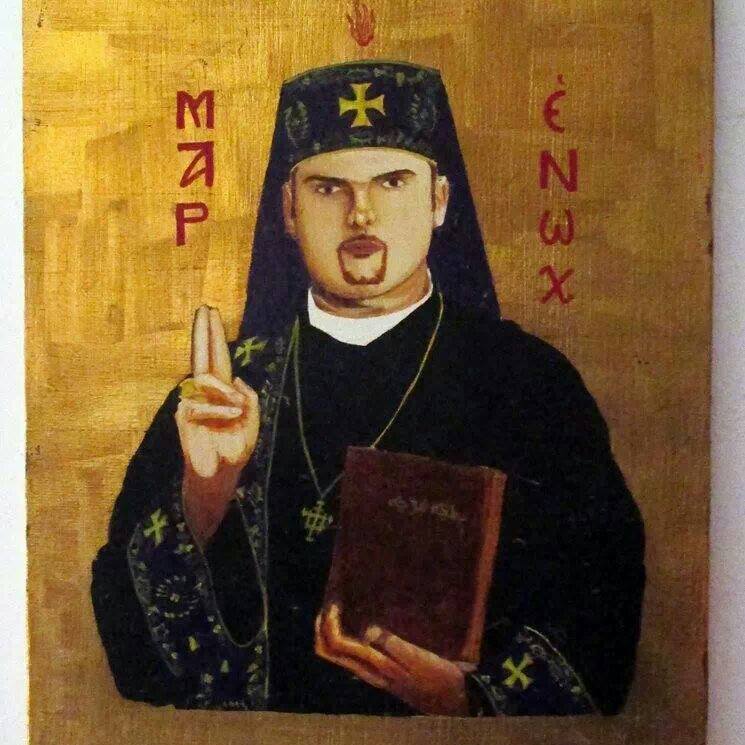3 Gifts of Spiritual Guides
(From Bishop Kalistos Ware)
Three gifts in particular distinguish the spiritual guide.
1. The first is insight and discernment (diakrisis), the ability to perceive intuitively the secrets of another’s heart, to understand the hidden depths of which the other does not speak and is usually unaware. The spiritual father or mother penetrates beneath the conventional gestures and subterfuges whereby we conceal our true personality from others and from ourselves;
Yet, for a word to possess power, it is necessary that there should be not only one who speaks with the genuine authority of personal experience, but also one who listens with attention and eagerness.
The elder’s gift of insight is exercised primarily through the practice known as the “disclosure of thoughts” (logismoi). In early Eastern monasticism the young monk used to go daily to his spiritual father and lay before him all the thoughts which had come to him during the day. This disclosure of thoughts includes far more than a confession of sins, since the novice also speaks of those ideas and impulses which may seem innocent to him, but in which the spiritual father may discern secret dangers or significant signs. Confession is retrospective, dealing with sins that have already occurred; the disclosure of thoughts, on the other hand, is prophylactic, for it lays bare our logismoi before they have led to sin and so deprives them of their power to harm. The purpose of the disclosure is not juridical, to secure absolution from guilt, but its aim is self-knowledge, that we may see ourselves as we truly are.
The principle underlying the disclosure of thoughts is clearly summed up in the Sayings of the Desert Fathers: “If unclean thoughts trouble you, do not hide them but tell them at once to your spiritual father and condemn them. The more we conceal our thoughts, the more they multiply and gain strength… [But] once an evil thought is revealed, it is immediately dissipated… Whoever discloses his thoughts is quickly healed.”[3]
If we cannot or will not bring out into the open a logismos, a secret fantasy or fear or temptation, then it possesses power over us. But if with God’s help and with the assistance of our spiritual guide, we bring the thought out from the darkness into the light, its influence begins to wither away. Having exposed the logismos, we are then in a position to deal with it, and the process of healing can begin. The method proposed here by the early monks has interesting similarities with the techniques of modern psychoanalysis and psychotherapy. But the early monks had worked out this method fifteen centuries before Freud and Jung! There is, of course, an important difference: the early monks did not employ the notion of the unconscious in the way that modern psychology does, even though they recognized that with our conscious understanding we are usually aware of only a small part of ourselves.
2. The second gift of the spiritual father or mother is the ability to love others and to make others’ sufferings their own. Of one elder mentioned in the Sayings of the Desert Fathers, it is briefly and simply recorded: “He possessed love, and many came to him.”[6] He possessed love — this is indispensable in all spiritual motherhood and fatherhood. Insight into the secrets of people’s hearts, if devoid of loving compassion, would not be creative but destructive; if we cannot love others, we will have little power to heal them.
Loving others involves suffering with and for them; such is the literal sense of the word “compassion.” “Bear one another’s burdens, and so fulfill the law of Christ” (Gal 6:2): the spiritual father or mother is the one par excellence who bears the burdens of others.
Yet the relation between the spiritual father and his children is not one-sided. Though he takes the burden of their guilt upon himself and answers for them before God, he cannot do this effectively unless they themselves are struggling wholeheartedly on their own behalf. Once a brother came to St Antony of Egypt and said: “Pray for me.” But the old man replied: “Neither will I take pity on you nor will God, unless you make some effort of your own.”[11]
3. A third gift of the spiritual father and mother is the power to transform the human environment, both the material and the non-material. The gift of healing, possessed by so many of the startsi, is one aspect of this power. More generally, the starets helps his disciples to perceive the world as God created it and as God desires it once more to be. The true elder is one who discerns the universal presence of the Creator throughout creation, and assists others to discern it likewise. He brings to pass,
The lack of spiritual fathering and mothering is eroding our culture…

